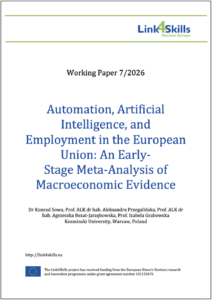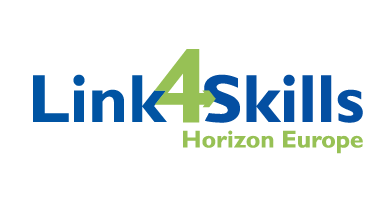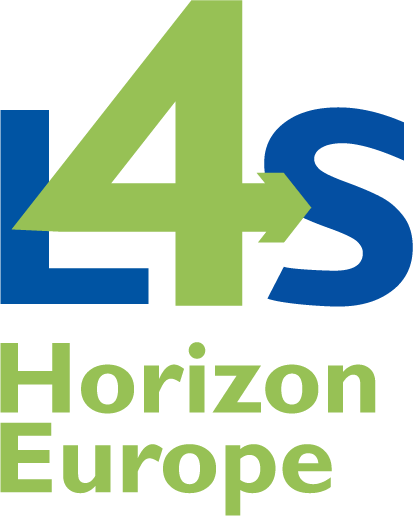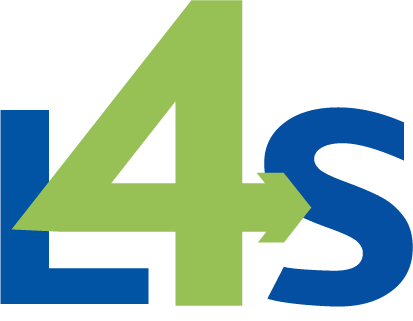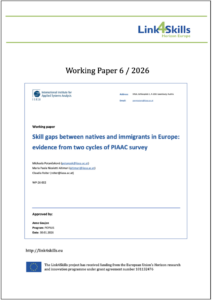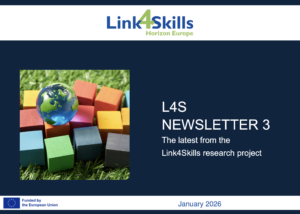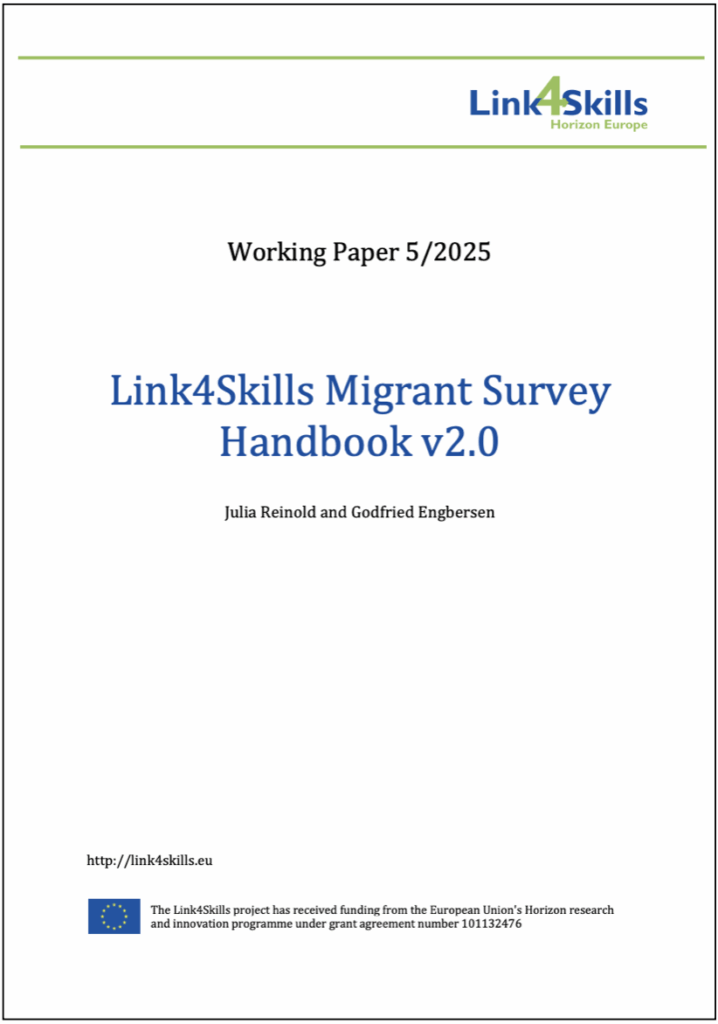This Handbook provides key information about the design, implementation and analysis of the Link4Skills Migrant Survey. It offers insights for researchers who’ll be working with the survey dataset when published after 31 December 2026. The Handbook reflects new approaches, best practices and lessons learned based on field experiences, survey participants, ethics advisors, and data management experts. Learn more about the survey in this special section of our website.
